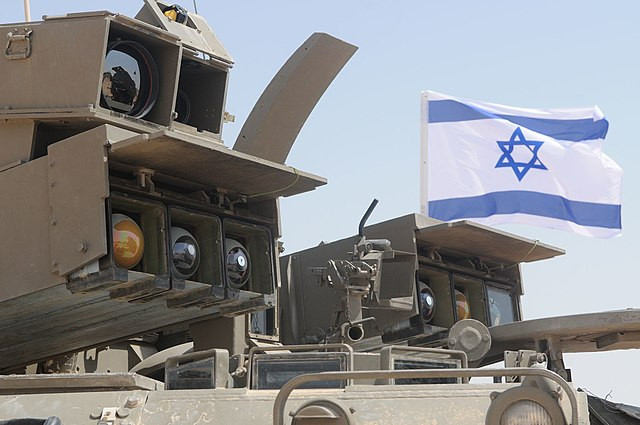Israel's military has intensified its campaign in southern Lebanon, urging residents of over 20 towns to evacuate as the conflict with the Iran-backed Hezbollah group worsens. The call for evacuations on Thursday included the provincial capital Nabatieh, a strong indication that Israel is preparing for a more aggressive military push aimed at further weakening Hezbollah's stronghold in the region.
Israel, which has been engaged in fighting with Hamas in Gaza for nearly a year, launched a ground incursion into southern Lebanon following two weeks of heavy airstrikes. The escalation comes after Israel experienced its highest casualties in over a year, signaling a significant shift in the ongoing conflict. The operation in southern Lebanon is seen as part of Israel's broader strategy to confront Hezbollah while also keeping an eye on Iran, a key backer of the militant group.
Tensions have reached new heights after an Israeli airstrike on central Beirut early Thursday killed nine people, including seven members of a Hezbollah-linked civil defense group. The strike, which hit the Bachoura neighborhood near Lebanon's parliament, marked one of the closest attacks to the heart of downtown Beirut since the conflict began. The Lebanese health ministry confirmed the casualties, and the attack has drawn widespread condemnation from local and international leaders.
U.N. Special Coordinator for Lebanon Jeanine Hennis-Plasschaert expressed the growing fear and uncertainty engulfing Beirut's residents. "Another sleepless night in Beirut. Counting the blasts shaking the city. No warning sirens. Not knowing what's next," she wrote on X (formerly Twitter), highlighting the widespread anxiety in the capital.
In response to Israel's escalation, Hezbollah has ramped up its activities, with the group's leader, Hassan Nasrallah, being killed in an Israeli airstrike last week. Israel has continued to target Hezbollah's military infrastructure, reportedly killing 15 members of the group in southern Lebanon on Wednesday. The intensifying ground combat has also claimed the lives of eight Israeli soldiers, further fueling the already volatile situation.
Israel is now weighing its options for retaliation against Iran, which has become directly involved in the conflict. Earlier this week, Iran launched its largest-ever missile attack on Israel, citing it as retaliation for the assassination of senior Hamas and Hezbollah leaders. The Iranian regime's actions have escalated tensions not only in Lebanon but across the region, threatening to draw in global powers, including the United States.
In a significant development, the United States and Israel have vowed to strike back hard against any further provocations. While Iranian President Masoud Pezeshkian stated that Iran's attack was over for now, he warned of decisive retaliation should Israel cross Iran's red lines. This warning has prompted international concern about the risk of a wider regional war, with the possibility of involving more countries like Yemen, Iraq, and Syria, where Iran holds significant influence through various militias.
The humanitarian toll has been staggering, with more than 1,900 people killed and over 9,000 wounded in Lebanon alone since the cross-border fighting began nearly a year ago. According to the Lebanese government, over a million people have been displaced, many of whom have sought refuge in makeshift shelters, including a nightclub in Beirut that has been repurposed to house hundreds of families fleeing the violence.
"We're trying to keep strong," said Gaelle Irani, who once worked as a guest relations manager at the nightclub. "It's overwhelming and sad, but we are doing everything we can to help."
Meanwhile, Israel's air and ground operations have also taken a severe toll on Gaza, where more than 41,500 people have been killed since the conflict erupted in October 2023. The Israeli military has reported daily exchanges of fire with Hezbollah, and the fighting has intensified in recent weeks, with no clear end in sight.
As the bloodshed continues, countries are ramping up their efforts to evacuate their citizens from Lebanon. The U.K. has chartered flights to evacuate British nationals, while Japan and Australia are also preparing for possible airlifts. The U.S. State Department has urged its citizens to leave Lebanon while commercial flights are still available, warning that further deterioration of the security situation could make evacuations more difficult.
In a speech earlier this week, Israeli Prime Minister Benjamin Netanyahu vowed to retaliate against Iran for its missile strikes, while President Biden called for proportional responses. U.S. Secretary of State Antony Blinken has condemned Iran's actions as "totally unacceptable" but praised Israel's missile defense systems for thwarting the bulk of Iran's assault.




